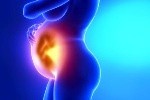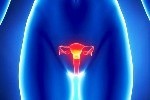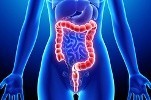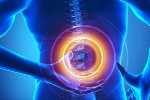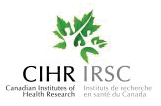Immune Infertility
On average, infertility occurs in one of every five couples of reproductive age [1]. Among whom, there is 10-20% of unexplained infertility. A subset of infertile patients has been found to possess antisperm antibodies (ASAs) in semen, blood, cervical mucus or follicular fluid. Clinically, these patients are classified as being immunologically infertile.
It is widely accepted that immunoinfertility is one of the major causes of infertility in humans [2]. Investigations on the potential role of ASAs in infertile couples have been performed extensively
during the past three decades. However, questions about the underlying mechanisms of ASA in reproduction, testing methods, the relationship between ASAs and infertility, and the treatment of
ASA-mediated human infertility still remain. Moreover, standardized assays and valid treatment methods for ASA-mediated infertility are so far lacking [3]. In fact, research on ASA-related
infertility is limited.
Infertility-Assocaited Autoimmunity
Elevated levels of immune markers like antiphospholipid antibodies, and anti-cardiolipin antibodies are thought to be associated with an immune reaction to an implanting embryo. Other markers of
potential immunological fertility factors include anti-nuclear antibody, premature elevations of follicle stimulating hormone, lupus anticoagulant, and other clotting factors.
Some of these markers represent a reaction to the husband's "nonself" tissue interacting with the woman's "self" tissue, thereby causing an immune response. Other markers may indicate a woman has
antibodies to her own endogenous hormones and neurotransmitters, causing hormonal disturbances including premature ovarian failure.
Since the process of conception and pregnancy involves a suppression of the T-helper immune response so that the woman can carry the fetus to term, any overriding of this suppression can cause the
embryo or fetus to abort.
Level of Anti-Sperm Antibody and Infertility
Antisperm antibody concentration may be of importance in affecting sperm function. As the level of antibodies increases, sperm function could be impaired, and the chance of spontaneous pregnancy declines, since it is well known that men may father children in the presence of lower or equivocal titers of ASA [7] .
Although sera from women, in general, have been demonstrated to have higher titers of autoantibodies than their male counterparts, levels of ASA titers were significantly lower in women than in men [6] . High titers of ASA measured in the seminal plasma or serum of men are believed to be the main cause of their infertility.
Mechanisms of Immune Response Against Sperm & ASA-induced Infertility
The human immune system is trained during the early postnatal period. In men, at puberty when the sperm first appear in the testis and epididymis, the human immune system will have the chance to contact sperm antigens. Similarly, when women become sexually active, their immune system will inevitably contact sperm antigens. Therefore, once sperm, as an autoantigen, activates the human immune system, an autoimmune response against human sperm will occur.
Three immune mechanisms are currently considered to be causes of human infertility. These include autoimmunization in men and the formation of both circulating and tissue antibodies against semen in women. In men, an immunoglobulin G in plasma has been shown to cause agglutination of spermatozoa. In women, a circulating immunoglobulin G has immobilized spermatozoa, while immunoglobulin A in cervical mucus has agglutinated spermatozoa.
The antigen responsible for these immune responses has not yet been identified, though it may be one of several proteins present in seminal plasma. One possibility is lactoferrin which, in addition to being present in seminal plasma, also coats the spermatozoa. Clinically, an immunological examination is indicated in problems of infertility when results of routine tests are normal.
The theory behind treating autoimmune fertility disorders is to reprogram the immune system to not react to self-tissue, and to allow the normal suppression involved in implantation to occur.
Chinese Medicine Treatment for Immune Infertility
Traditional Chinese Medicine has been treating autoimmune infertility for thousands of years. Modern Reproductive Endocrinology has only recognized the impact of immunologic factors for a few years. As with all Chinese Medical treatment, a proper diagnostic pattern must be established before treatment will be effective.
The immune system will correct itself when the body is in balance. Many women with previously diagnosed "unexplained infertility" or autoimmune fertility factors have been effectively treated with diet and herbal therapy.
Although it remains a mystery, the combined therapy of acupuncture with herbal drugs has reportedly definite therapeutic effects on male immune infertility [8] . Chinese medicine Yiqihuoxuetang (YQHXT) could inhibit ASAs by maintaining the balance of T-lymphocyte subpopulations in immunoinfertile men [9] .
Herb medicine could treat immune infertility accompanied by chronic seminal vesiculitis. The results showed that ASA tests became negative in 85.6% of the patients after treatment, and the pregnancy rate of their wives was 49.1% [10] .
In addition, TCM therapy could effectively regulate autoimmunity and endocrine function [2] . Since most of the available techniques, such as immunosuppressive therapies, have side effects, are invasive and expensive and have low efficacy, or have conflicting results, Chinese medicine treatment may be a relatively adequate choice, although their action mechanisms remain unclear.
Also, monoclonal antibodies were used in the treatment of autoimmune diseases [4] and may be adapted for the treatment of autoimmune infertility. In addition, zinc therapy (250 mg twice daily for 3
months) has a role in reducing the levels of ASAs and TNF-[alpha] and increasing that of IL-4 [11].
References
1 Koide SS, Wang L, Kamada M. Antisperm antibodies associated with infertility: properties and encoding genes of target antigens. Proc. Soc. Exp. Biol. Med. 224, 123-132 (2000). * Describes seven target sperm antigens and their encoding genes.
2 Naz RK. Modalities for treatment of antisperm antibody mediated infertility: novel perspectives. Am. J. Reprod. Immunol. 51, 390-397 (2004).
3 Kutteh WH. Autoimmune factors in assisted reproduction. Minerva Ginecol. 54, 217-224 (2002).
4 Bohring C, Krause W. Immune infertility: towards a better understanding of sperm (auto)-immunity. The value of proteomic analysis. Hum. Reprod. 18, 915-924 (2003). * Highlights the importance and identification of functionally relevant antigens.
6 el-Roeiy A, Valesini G, Friberg J et al. Autoantibodies and common idiotypes in men and women with sperm antibodies. Am. J. Obstet. Gynecol. 158, 596-603 (1988).
7 Lombardo F, Gandini L, Dondero F, Lenzi A. Immunology and immunopathology of the male genital tract. Hum. Reprod. Update 7, 450-456 (2001).
8 Fu B, Lun X, Gong Y. Effects of the combined therapy of acupuncture with herbal drugs on male immune infertility - a clinical report of 50 cases. J. Tradit. Chin. Med. 25, 186-189 (2005).
9 Ma HG, Xu JX, Zhang JF, Zhang F, Wang QT, Xiong CL. The effect of Chinese medicine yiqihuoxuetang on T-lymphocyte subpopulation in peripheral blood of infertile men with antisperm antibodies.
Zhonghua Nan Ke Xue 9, 154-156 (2003).
10 Meng Z, Luo E. A microcomputerized pulsed water-sac massage with drug penetration instrument for treatment of male patients with immunity infertility accompanied by chronic seminal vesiculitis. Sheng Wu Yi Xue Gong Cheng Xue Za Zhi 20, 460-462 (2003).
11 Omu AE, Dashti H, Al-Othman S. Treatment of asthenozoospermia with zinc sulphate: andrological, immunological and obstetric outcome. Eur. J. Obstet. Gynecol. Reprod. Biol. 79, 179-184
(1998).
Contact Us
Chalmers Medical Building
328 Hwy 7 East Suite 201,
Richmond Hill ON L4B 3P7
Tel: 416 399-3888
E-mail: info@aahclinic.com
Conditions Treated
Effective Herbal Therapy for Inflammatory Bowel Disease
NO Surgery!
Carolyn XU Treats Ulcer Colitis Successfully
Considering Therapy?
Resource Links
References
Donation
Great things happen when you put your heart into it.
Click Here to Send us your request
Tips
Questions about your first appointment or if your insurance will cover the cost? Find more information below.


